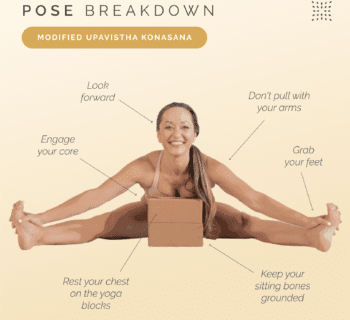Meditation has been proven to bring numerous benefits to our mental and physical health. But, as a beginner, you might be wondering how long should you meditate each day to reap its benefits. Is it just a few minutes or should you meditate for hours? In this blog post, we will explore the ideal duration and frequency of meditation for beginners to help you establish a sustainable practice and discover the sweet spot that works for you.
What are the benefits of meditation?
Before diving into how long to meditate, let’s first understand the benefits of this ancient practice. Meditation has been shown to reduce stress and anxiety, improve sleep, increase focus and attention, enhance emotional regulation, and even boost the immune system. When practiced regularly, meditation can help cultivate a sense of inner peace and well-being, leading to a more fulfilling life.
What is the ideal length for a daily meditation session?
The ideal length for a daily meditation session varies depending on your experience level and personal preferences.
Experts suggest that beginners start with a short period of meditation session of 5 to 10 minutes daily, gradually increasing the duration as they become more comfortable. Once you have established a daily meditation routine, it’s recommended that you aim for 20 minutes to 30 minutes of meditation per day for best results and maximum benefits.
It’s important to note that meditation is a personal practice, and the ideal length of your daily meditation session will depend on your needs and lifestyle. If you have a busy schedule, you may find it challenging to commit to a 30-minute meditation session every day. In such cases, you can break your meditation sessions into shorter ten-minute sessions several times a day.
Ultimately, the most important thing is to establish a consistent meditation practice regardless of the duration of your sessions. The more you meditate, the more you will reap the benefits of this ancient practice, including reduced stress levels, improved focus, and increased happiness.
Factors to consider when deciding how long to meditate
When deciding how long to meditate, there are several factors to consider. Firstly, your level of experience with meditation plays a significant role. If you are a beginner, shorter sessions may be more manageable, and you can gradually increase the duration as you become more comfortable with the practice. Secondly, your schedule and lifestyle can impact the length of your daily meditation practice. If you have a busy schedule, shorter sessions throughout the day may be more feasible than a single, longer session.
Additionally, the purpose of your meditation practice can influence the ideal length of your sessions. If you are meditating to reduce stress and promote relaxation, shorter sessions may be effective. However, if you are meditating to develop focus and concentration, longer sessions may be beneficial. It’s essential to be mindful of your intentions and goals for your meditation practice when deciding how long to meditate each day.
What are different schools of thought about the frequency of meditation?
When it comes to the frequency of meditation, there are different schools of thought. Some experts suggest meditating once or twice a day, while others advocate for multiple meditation sessions throughout the day. The key to finding the right quantity for you is to listen to your body and be mindful of your schedule.
If you are new to meditation, it’s best to start with one daily practice and gradually increase the frequency as you become more comfortable with the practice. As you progress, you can experiment with different meditation schedules to find what works best for you.
Tips for incorporating meditation into your routine
Incorporating meditation into your daily routine can feel challenging at first, but it’s important to remember that consistency is key. Feeling the benefits of meditation can be motivating. That can be a driving factor in your decision to continue to practice. To get to that point though you need to set yourself up for success. Here are some tips to help you make meditation a regular part of your day:
1. Start small: Begin with just a few minutes of meditation each day and gradually increase the duration as you become more comfortable.
2. Find a time that works for you: Whether it’s first thing in the morning or before bed, find a time that works best with your schedule and stick to it.
3. Create a dedicated space: Set up a space in your home that is solely designated for your meditation practice. This can help to create a sense of routine and make it easier to stick to your practice.
4. Use guided meditations: If you’re struggling to stay focused during your meditation practice, consider using a guided meditation app or recording to help keep you on track.
Remember, there is no one-size-fits-all approach to meditation. It’s important to listen to your body and find a frequency and duration that works best for you. So, start small, be consistent, and enjoy the many benefits of meditation.
How can technology help you stick to a meditation practice?
With the rise of technology, there are now countless apps and online resources available to help beginner meditators establish and maintain a consistent practice. Guided meditations are available on Omstars. We have over 250 meditations for you to choose from. Ultimately, the key to success is consistency, whether you’re using technology or not.
What is the minimum amount of time I should spend meditating?
As a beginner meditator, it’s common to wonder about the minimum amount of time you should spend meditating for optimal results. Most beginners should aim to meditate for at least 5-10 minutes per session. This may not seem like a lot of time, but according to science, the key is to develop consistency and make meditation a daily habit.
It’s worth noting that the benefits of meditation are cumulative, so even short sessions can be effective. Consistency is more important than duration, so try to meditate for a few minutes every day, rather than one long session once a week.
Ultimately, it’s up to you to decide how long you want to meditate for. As a beginner, you may find it helpful to start with shorter sessions and gradually increase over time. Remember, the goal is to make meditation a regular habit, so find a duration that works for you and stick with it.
In conclusion, there’s no right or wrong answer when it comes to how long and how often to meditate. The most important thing is to find a practice that works for you, and to be consistent with it. Aim for at least 20-30 minutes of meditation per day, but remember that even short sessions can be beneficial. With regular practice, you’ll begin to experience the benefits of meditation, and it will become an integral part of your daily routine.
Photo by Benjamin Child on Unsplash









